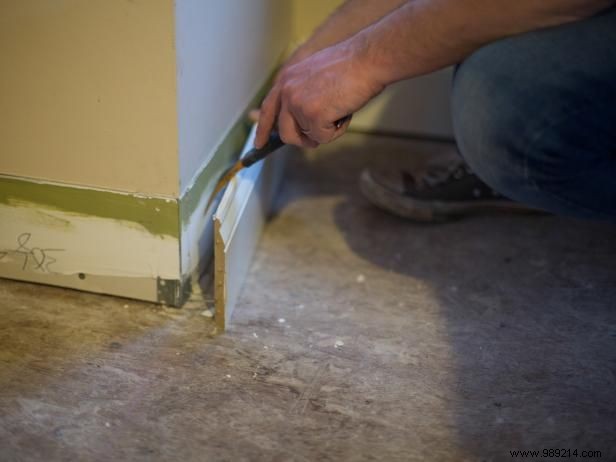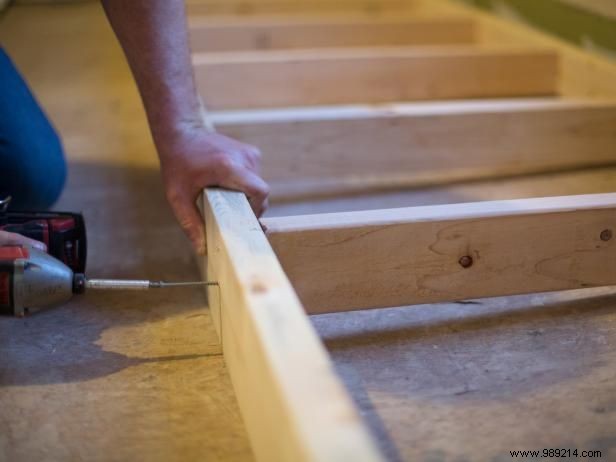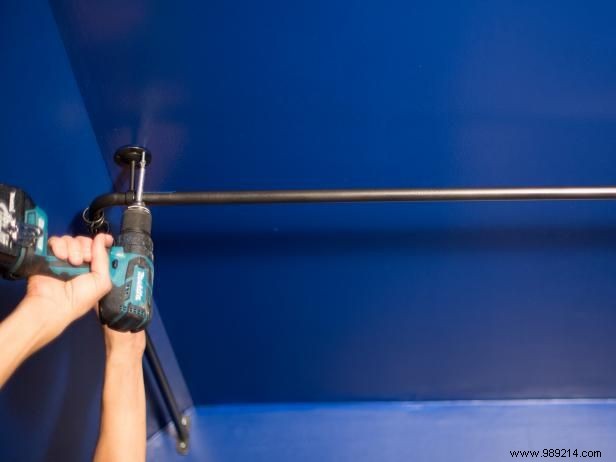
Brian Patrick Flynn
To structurally secure the play deck to the wall, the baseboards must first be removed. To do that, use a mini pry bar to pry loose baseboards out of the wall. You may need to use a utility knife to score a line between the wall and the baseboard first.

Brian Patrick Flynn
Use a tape measure and chalk line to mark the floor with the length and width of the stage. Game stages vary in size, depending on what they are used for. Stages used by one or two people for performances such as puppet shows are best sized between 24 and 36 inches deep and 4 feet wide. For group performances, such as multi-instrument music or puppet shows with more than three people, the stage may require a depth of 48 to 60 inches. Regarding the height, please note that once the plywood top is placed over the frame, it will increase its height by 3/4".

The game stage will be structurally supported by a frame made of 2x4 or 2x6 lumber (depending on personal preference). To create the frame, refer to the marks you made on the floor with a chalk line for the exact width and depth of the stage. Use a circular saw to cut the wood to the exact size of the stage. Put the four sides of the frame in position; Attach each piece using a drill and 3" wood screws.

Beams are needed to add stability to the center stage and support weight distribution. To create the joists, measure, mark, and cut the lumber to the inside width of the play deck (from the inside edge of the front and back strips of lumber). Starting in the center of the frame, space each of the studs 16 inches apart, then secure to the front and back of the frame with 3" wood screws and drill.

Use a stud finder to determine the location of the studs within the wall. Set the frame flush against the wall, then secure the frame to the wall (via studs) with 3" wood screws.

Measure, mark and cut the plywood to the size of the stage. Apply a bead of wood glue along the top edges of the assembled frame. Lay the plywood directly on the glued surface of the frame, then secure it in place with a nail gun and brad nails.

Brian Patrick Flynn
Add personality by painting the stage a rich color or creating a unique pattern with spools of colored tape. We use porch and deck paint for durability, especially if you're going to be tap dancing.

Brian Patrick Flynn
With the help of a friend, stand on a ladder and use a stud finder to determine the location of the ceiling joists. Add drywall anchors to studs where ceiling-mounted drapery hardware will be attached. Put the drapery rod into position, slide the drapery rings into place along the rod, then secure the rod to the drywall anchors with drill and screws.

Brian Patrick Flynn
Add drapery hooks along the top of the drapery panels, then attach them to the drapery rings.

Brian Patrick Flynn
Your audience will be impressed with your DIY prowess and performance.